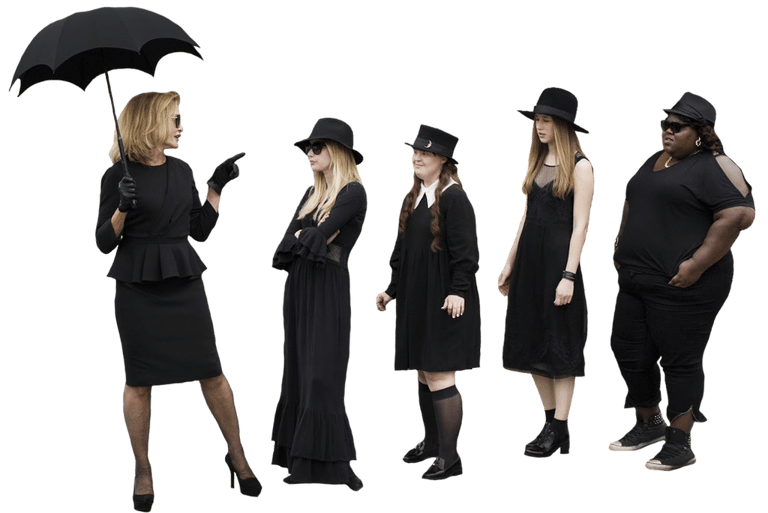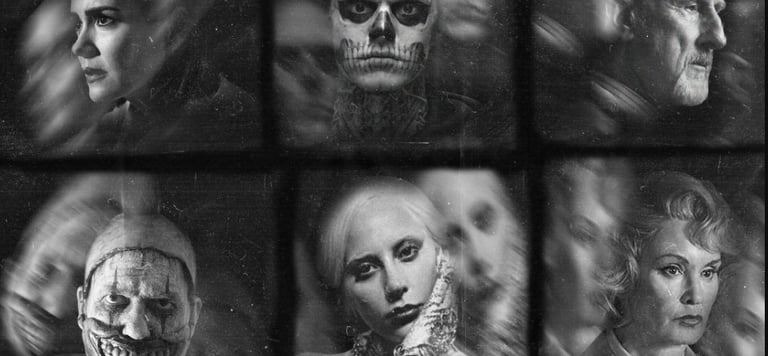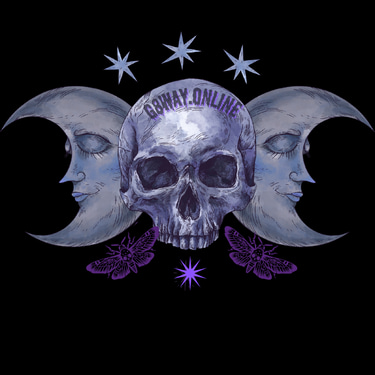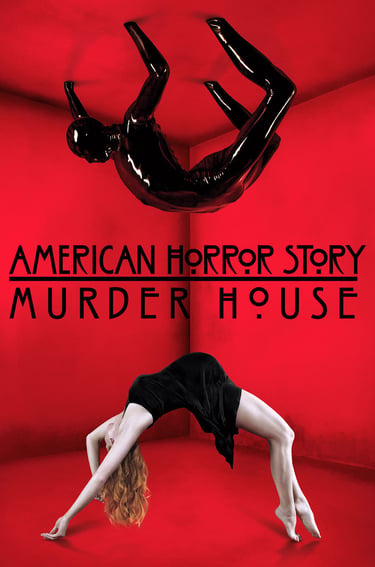Missing American Horror Story
How it started as opposed to how it's going. This once great series has apparently thrown in the towel and has abandoned its day-one fandom. What's happening with American Horror Story is a lesson in why it's important to gracefully bow out before you die a slow death. . .
Illya Burke
4 min read
In my humble opinion, American Horror Story used to be a beacon of good ol' fashioned storytelling, merging the oddly peculiar with societal norms. Yet, as we delve into its evolving spectrum, we must ask ourselves: How much of it remains authentically American or genuinely horrific? Are these tales crafted with depth, or have they succumbed to Hollywood's relentless fluff machinery?
The American Essence
At its core, AHS was written to intertwine the different textures of American life. Each season explored themes rooted in the nation's history—be it the grotesque acts of slavery, the unspeakable atrocities committed in sanitariums, or the complexities of inner turmoil. Each season served as a lens through which we examine the darker facets of the American psyche. Themes of fear—fear of the unknown, fear of the "other," fear of societal collapse—are not just horror tropes but reflections of real anxieties that permeate the national consciousness. From the haunted residence of “Murder House” to the eerie landscapes of “Apocalypse,” the series taps into historical injustices, cultural taboos, and personal traumas that are all undeniably American.
These narratives were well woven into the storylines, reflecting the multifaceted nature of America itself. However, as the series has progressed, the thematic depth often comes across diluted, replaced by sensationalism that seeks to polish trash rather than provoke thought.
The Nature of Horror
I gotta say: I MISS HOW IT WAS! The horror presented was emblematic of our collective nightmares. It drew out from a rich tradition of Gothic literature & folklore while simultaneously addressing contemporary issues. This fusion created a canvas where art met activism, provoking thought amidst the scares. Far from being mere fluff, these narratives challenged viewers to confront uncomfortable truths about their society AND themselves.
So, did you catch the pitch?! Horror, historically, serves as a mirror reflecting our own fears. The most horrifying elements of the show stemmed from real societal issues—murder, racism, mental illness, and the trails of violence that haunts American culture. Yet in recent seasons, the horror often seems to act merely as a backdrop for melodrama, reducing profound societal critiques to itty-bitty spectacles. This pivot raises questions about whether the haunting narratives that once captivated audiences are being overshadowed by veiled gimmicks.
Hollywood Scars
Hollywood, with its fondness for the sensational, often sidelines narrative substance in favor of visual flair. As AHS grapples with this tension, we're witnessing a 'creative vs corporate' struggle between artistry and marketability. Most of the characters who once seemed disturbing have morphed into caricatures, and the chilling settings that elicited a sense of dread now look more like elaborate sets than authentic environments. What was once a revolutionary exploration of horror has increasingly been interwoven with the glitz of commercial entertainment.
A Dying Flame
While the first few seasons are often hailed as high-water marks in television history, subsequent iterations have sparked debate among both fans & critics. The journey from compelling horror to what some now deem as bubblegum-pops & celebrity fluff signifies a broader trend in the industry—a shift toward formulaic storytelling that prioritizes catchphrases over character development. If AHS continues down this path, it risks losing its identity and the raw emotional connection that once made it resonate with viewers.
Hopeful Visions for the Future
As we gaze into the future of this once iconic series, we can only hope for a renaissance—a return to the haunting, reflective qualities that once propelled it to greatness. Maybe the key lies in rejuvenating the authentic American experience, in crafting tales that not only creep you out but inspire a deeper conversation about who we are as a society. There's soooooooo much untapped weird & evil history in America. By embracing the complexities of horror rooted in our actual past, AHS could reclaim its place as a pioneer in both genre and cultural discourse.
Moreover, American Horror Story used to be my fave! As stated, I literally mourn how they used the horror genre to transcend storytelling boundaries. It eloquently blurred the lines between myth & history. By doing so, they invited audiences to engage with their fears in a way that is both enthralling and enlightening— a hallmark of visionary storytelling!
In Conclusion. . .
While AHS may stumble in its bid for authenticity and horror nowadays, the potential for rebirth still flickers. It beckons us to envision a series that is not just a reflection of fear, but a profound exploration of the human condition—one that invites viewers to not just witness but to engage with the stories that shape our collective American lives.




A range of sturdy bat boxes to help bats have a safe place for shelter.
Eclectic Occultist
G8WAY intellectual property found herein is branded as such and most graphic interchange formats along with all links lead to external businesses not owned or operated by G8WAY. If you own any image included here and wish to request its removal or proper attribution, please contact admin@g8way.online and G8WAY will respond promptly. Please note: a page’s presence in G8WAY does not imply it is complete. Each entry is a living document that may be subjected to editorial corrections and/or additions. G8WAY may earn a commission when users make a purchase through links posted throughout this site. Information on WWW.G8WAY.ONLINE is for informational purposes only and should not be considered professional advice. Thank You for Visiting! G8WAY.ONLINE ©2025 All rights reserved.





